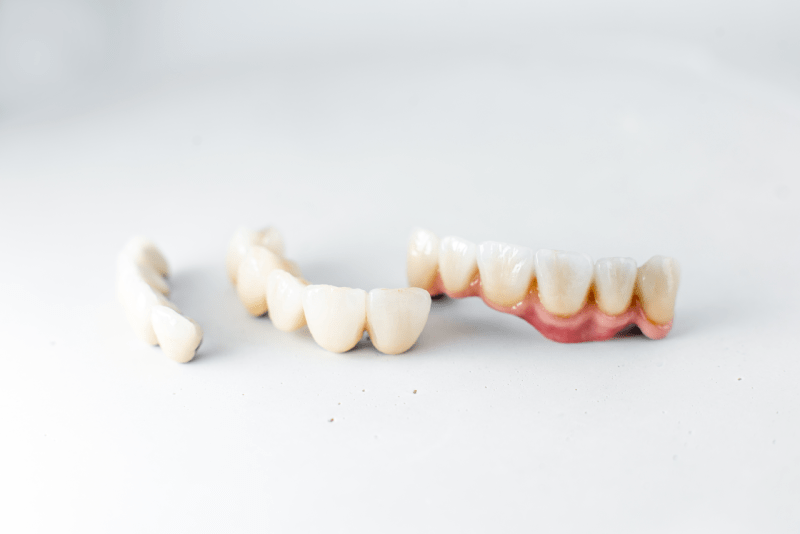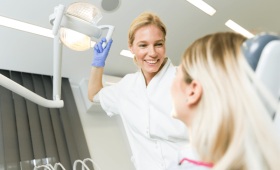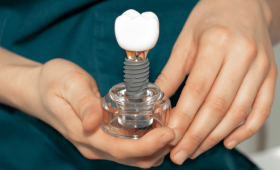This report provides a comparative analysis of dental implant and Hollywood Smile procedures between Italy and Turkey. Turkey generally stands out for significantly lower costs, often with all-inclusive packages, while Italy maintains a reputation for stringent regulatory standards and established quality, despite higher prices. This disparity is attributed to Turkey’s lower operating costs and favorable exchange rates. The “all-inclusive” packages in Turkey are a major draw, simplifying logistics and enhancing perceived value for international patients. In contrast, clinics in Italy are less likely to offer such comprehensive packages. These differences highlight key factors influencing costs, treatment durations, and material qualities, demonstrating that both countries offer unique advantages in the dental tourism market.
Introduction to Dental Tourism: Italy and Turkey
Italy and Turkey are positioned as prominent destinations in the global dental tourism market. Both countries possess their own appeals to attract international patients. Dental tourism reflects a shift in global healthcare consumption, driven by various factors such as patients’ desire for cost savings, high-quality care, and the opportunity to combine treatment with tourism. The rise of dental tourism, particularly to countries like Turkey, indicates a global shift in healthcare consumption patterns, driven by economic disparities and increasing patient mobility. This suggests that patients are increasingly willing to travel internationally for elective medical procedures. This trend indicates that countries are actively competing not only on clinical outcomes but also on the entire patient experience, including logistics and perceived value. This competition fosters innovation in service delivery and pricing models. This report delves into these markets in Italy and Turkey, focusing on dental implant and Hollywood Smile procedures.
Dental Implants: A Detailed Comparison
Cost Analysis: Italy and Turkey
Dental implant costs vary significantly in both Italy and Turkey. These variations depend on the chosen clinic, location, and any additional procedures required.
Dental Implant Costs in Italy: In Italy, the starting price for a single dental implant ranges from €850 to €1500. The average starting price is
€1082.5 per implant. Lower-cost options like Clinic Fantozzi in Rome start from €850, while mid-range clinics such as Humanitas Hospital in Milan begin at €990. High-quality service clinics like Centro Chir.Toscano in Arezzo can charge up to €1500. The average cost for a single implant with a crown ranges from
€1,500 to €3,500. A broader “Dental Implants” cost is generally stated as
$1,500. In addition to the implant cost, an abutment and crown can add
€500 to €1000, bone grafting €500 to €1000, and a sinus lift procedure €1000 to €2000. CT scans and X-rays range from €100 to €300.
Dental Implant Costs in Turkey: In Turkey, dental implant costs generally range from $400 to $1500 USD per implant. Some sources indicate prices between
$550 and $1080. Costs vary by implant type: Swiss Implants (“Straumann”)
$800-$1200, German Implants $500-$900, Turkish Implants $250-$600, and Italian Immediate Implants $400-$800. Prices in Turkish Lira are also available in clinics across Turkey, for example,
₺11939 – ₺21490. Full-mouth implant procedures can start around
€2,500+.
Dental implant costs in Turkey are significantly lower compared to Italy, often providing 2 to 3 times the savings for a single implant, and even more for full-mouth restorations. The wide price ranges in Italy (e.g., €850 to €3500) and Turkey (e.g., $400 to $1500) indicate that “cost per implant” is a highly variable metric. This variability depends not only on the country but also on clinic reputation, location within the country (e.g., Milan/Rome vs. Arezzo in Italy ; Istanbul/Ankara/other cities in Turkey ), the specific implant brand/material, and the inclusion of associated procedures like abutments, crowns, or bone grafts. It is therefore crucial for patients to request comprehensive price quotes.
The following table provides a comparative overview of single dental implant costs:
Table 1: Comparative Costs of Single Dental Implants (Italy vs. Turkey)
| Feature | Italy | Turkey | Source IDs |
| Starting Price Range (Implant Only) | 850€ – 1500€ | 400$ – 1500$ USD | |
| Average Price (Implant Only) | 1082.5€ | 550$ – 1080$ USD | |
| Price Range (Implant + Crown) | 1.500€ – 3.500€ | (400$-1500$ USD per implant, including crown) | |
| Full Mouth Implant (Starting) | Not specified | 2.500€+ | |
| Additional Procedures (e.g., Bone Graft) | 500€ – 1000€ | Increases cost (approx. thousand dollars) | |
| Additional Procedures (e.g., Sinus Lift) | 1000€ – 2000€ | Increases cost |
Procedures, Durations, and Materials: Italy
The typical process for dental implants in Italy involves surgical techniques aimed at completely replacing a lost tooth, both aesthetically and functionally.
Procedures: Dental implantology involves the surgical placement of artificial pillars (implants) into the bone, which then support one or more artificial teeth. Various techniques are available, including traditional implantology, immediate loading implantology (implant and temporary prosthesis placed within 12-48 hours), All-on-Four, All-on-Six, Toronto Bridge, and computer-guided implantology. CT scans and X-rays are standard diagnostic tools. The availability of “immediate loading” and “computer-guided” implantology alongside traditional methods in Italy indicates a focus on both efficiency and precision. This suggests that Italian clinics are adopting advanced technologies to meet patient demands for faster treatment and optimized results, potentially justifying their higher costs.
Durations: Traditional implant-prosthetic rehabilitation typically takes 3 to 6 months, depending on the clinical case. Immediate loading techniques significantly shorten this period, allowing for the placement of a temporary fixed prosthesis within
12 to 48 hours. The healing period after implantation, before the crown is made, usually lasts
2 to 4 months.
Materials: Implants are commonly made of titanium.
Zirconia implants are also mentioned. Crowns are typically screw-retained with a titanium screw.
Common Implant Brands: Leading implant brands in Italy include Leone, Sweden & Martina, Medigma, and Tekka. The French brand
Anthogyr also holds a strong market share in Italy.
Leader Italia is another Italian manufacturer.
Procedures, Durations, and Materials: Turkey
The typical process for dental implants in Turkey, similar to Italy, involves the surgical placement of a metal implant (usually titanium) into the jawbone to replace the root of a missing tooth, followed by the attachment of a crown or bridge.
Procedures: The procedure involves surgically placing a metal implant (usually titanium) into the jawbone, followed by the attachment of a crown or bridge. Advanced techniques such as same-day implants, lasers, surgical guided implants, and All-on-Four are available. X-ray, consultation, follow-up appointments, and local anesthesia are often included in packages.
Durations: The entire procedure can typically be completed within 3 to 6 months. Immediate implants may take even less time.
Materials: Implants are commonly made of titanium. The use of high-quality materials is emphasized.
Common Implant Brands: Turkey utilizes a variety of international and local implant brands. International brands mentioned include Swiss Implants (Straumann ), German Implants (
BEGO, Camlog, Dentsply Sirona ), Korean Implants (
Osstem, Megagen Octa ), US brands (
Direct, Zimmer, Bicon ), French brands (
Biotect Kontact, Biotech Weego, Anthogyr ), and the Israeli brand (
Alpha Bio ). Local Turkish brands include
Nucleoss, Implance, DTI, Opus, Mode, and Omnitech. The wide range of implant brands in Turkey, encompassing both premium international brands (e.g., Straumann, BEGO) and more affordable local options, is a significant reason for cost variability and patient choice. This indicates that clinics in Turkey can tailor treatment plans to different budget points while still offering high-quality materials, thereby capturing a broader market segment.
The following table provides a comparative overview of dental implant procedures, durations, and key materials/brands:
Table 2: Overview of Dental Implant Procedures, Durations, and Key Materials/Brands
| Feature | Italy | Turkey | Source IDs |
| Typical Procedures | Traditional, Immediate Loading, All-on-Four/Six, Computer-Guided | Traditional, Same-Day Implants, Laser, Surgical Guided, All-on-Four | |
| Traditional Implant Duration | 3 – 6 months | 3 – 6 months | |
| Immediate Loading Duration | 12 – 48 hours (for temporary prosthesis) | Shorter (not specified, but available) | |
| Primary Materials | Titanium, Zirconia | Titanium | |
| Common Implant Brands | Leone, Sweden & Martina, Medigma, Tekka, Anthogyr, Leader Italia | Straumann, BEGO, Camlog, Dentsply Sirona, Osstem, Megagen Octa, Nucleoss, Implance, DTI, Opus, Mode, Omnitech |
Factors Influencing Dental Implant Costs
The final cost of dental implants is a multifaceted calculation, heavily influenced by clinical requirements, material choices, and the chosen service model (e.g., all-inclusive packages).
- Type of Implant: Different implant types and materials (e.g., Swiss, German, Turkish, Zirconia, or Titanium) have varying costs.
- Number of Implants: The total number of implants required directly impacts the overall cost.
- Additional Procedures: The need for procedures like bone grafting, sinus lifting, abutment, and crown significantly increases the total cost.
- Clinic and Location: Prices vary based on clinic reputation and geographical location within the country (e.g., major cities vs. smaller towns).
- Doctor’s Experience/Specialization: Highly experienced or specialized dentists (e.g., oral and maxillofacial surgeons, prosthodontists) may charge more.
- Technology Used: Advanced techniques such as computer-guided surgery or same-day implants can affect the cost.
- Package Inclusions: In Turkey, comprehensive packages often include consultations, X-rays, anesthesia, accommodation, and transfers. This can make the overall trip more cost-effective despite the base procedure cost. Such packages are less common in Italy. The “all-inclusive package” model prevalent in Turkey is a strategic business model designed to attract international patients by simplifying logistics and providing perceived added value. This contrasts with the more “à la carte” approach often found in Italy. This difference in business strategy is a significant factor in Turkey’s competitive pricing and market appeal, beyond just lower operating costs. It suggests that Turkey’s success in dental tourism stems not only from lower labor or material costs but also from a sophisticated understanding of international patients’ need for convenience and a seamless experience.
Hollywood Smile: A Detailed Comparison
Cost Analysis: Italy and Turkey
The costs associated with Hollywood Smile procedures differ significantly between the two countries.
Hollywood Smile Costs in Italy: Porcelain veneers, a key component of a Hollywood Smile, are listed at €800 to €1200 per veneer. The estimated cost for a full Hollywood Smile in Italy is between
€6,000 and €8,000.
Hollywood Smile Costs in Turkey: The cost of a Hollywood Smile in Turkey typically ranges from $2,000 to $5,000 USD. Another source indicates prices starting from
€2,500–€3,000. The average price in Turkey is around
$3,700, ranging from $2,355 to $6,400. Specific component costs include
€200–€400 per veneer/crown , with Zirconia Veneers starting from
$200, E-Max Laminate Veneers from $255, and Lumineers from $290. Full sets (16-20 veneers) can range from
$2,500 to $7,000+.
Hollywood Smile procedures are significantly more affordable in Turkey than in Italy, with savings often exceeding 50%. The substantial cost difference for a Hollywood Smile (e.g., 58% less in Albania compared to Italy , implying a similar difference for Turkey) suggests that cosmetic dentistry, being largely an elective procedure, is highly price-sensitive. This drives patients to seek more affordable options abroad, making the “Hollywood Smile” a flagship offering for dental tourism destinations like Turkey. The high out-of-pocket cost of cosmetic procedures makes the significant savings offered by Turkey particularly attractive.
The following table provides a comparative overview of Hollywood Smile costs:
Table 3: Comparative Costs of Hollywood Smile (Italy vs. Turkey)
| Feature | Italy | Turkey | Source IDs |
| Cost per Porcelain Veneer | 800€ – 1200€ | 200$ – 500$ (Varies by material) | |
| Full Hollywood Smile Package Cost Range | 6.000€ – 8.000€ | 2.000$ – 5.000$ USD (Average $3,700 in Turkey) | |
| Individual Components (e.g., Zirconia Veneer) | Not specified | 200$ (starting) | |
| Individual Components (e.g., E-Max Laminate Veneer) | Not specified | 255$ (starting) | |
| Individual Components (e.g., Lumineer) | Not specified | 290$ (starting) | |
| Full Set (16-20 Veneers) | Not specified | 2.500$ – 7.000$+ |
Procedures, Durations, and Materials: Italy
Information regarding typical procedures, durations, and materials for Hollywood Smile in Italy is limited.
Procedures: Sources primarily mention Porcelain Veneers as a core component of a Hollywood Smile. However, specific details outlining the steps or typical inclusions of a full “Hollywood Smile” procedure in Italy are not extensively described. General cosmetic dentistry services are offered. The lack of information on Hollywood Smile procedures, durations, and materials specifically in Italy within the provided sources is a notable finding. This could suggest that “Hollywood Smile” is not treated as a distinct, marketed package in Italy, or that the research material is limited. This implies that patients researching Italy for this specific cosmetic procedure might find it more challenging to find comprehensive, packaged information.
Durations: Specific durations for a full Hollywood Smile procedure in Italy are not stated in the sources.
Materials: The main material mentioned is Porcelain Veneers.
Common Veneer Brands/Materials: While not explicitly stated for Italy, high-quality veneer brands such as E-max, Lumineers, and Empress are globally recognized. The information that DenMat Italia Shop sells Lumineers suggests this brand is also available in Italy.
Procedures, Durations, and Materials: Turkey
In Turkey, a Hollywood Smile encompasses various cosmetic dental procedures aimed at achieving a flawless, white, and perfectly aligned smile.
Procedures: A Hollywood Smile makeover typically includes various cosmetic dental procedures such as Dental Veneers (thin shells), Teeth Whitening, Crowns (to cover damaged teeth), and sometimes Dental Implants (for missing teeth). The process involves an initial consultation and planning, tooth preparation, digital scans, temporary veneers, laboratory creation of custom veneers or crowns, trial fitting, and final placement. The inclusion of “Dental Implants” as a common procedure in a Hollywood Smile makeover indicates that the term “Hollywood Smile” is not merely about veneers but signifies a broad aesthetic transformation. This suggests that clinics offer full-mouth rehabilitation under this umbrella term, which significantly impacts the complexity, duration, and overall cost of the procedure, explaining the wide price range for a “Hollywood Smile” package.
Durations: While the overall timeframe varies, it typically takes 3 to 7 days or
5-7 days , assuming no additional procedures are needed. Some sources mention a stay of
7 to 10 days or
5-6 days in Turkey. If additional treatments like implants or gum treatment are required, the duration can extend.
Materials: Commonly used materials include porcelain, zirconia, composite resin, E-max, and Lumineers. Porcelain veneers can last 10-15 years with proper care, while composite materials typically last 4-8 years.
Common Veneer Brands/Materials: Popular brands/types include E-max (lithium disilicate ceramic ),
Lumineers (ultra-thin patented cerinate porcelain ),
Empress (leucite-reinforced ceramic ),
MAC Veneers, DuraThin, DaVinci, and Glidewell’s Vivaneers. Zirconia veneers are also widely used.
The following table provides a comparative overview of Hollywood Smile procedures, durations, and key materials/brands:
Table 4: Overview of Hollywood Smile Procedures, Durations, and Key Materials/Brands
| Feature | Italy | Turkey | Source IDs |
| Typical Procedures | Porcelain Veneers (detailed info not available) | Dental Veneers, Teeth Whitening, Crowns, (sometimes) Dental Implants | |
| Average Duration | Information not available | 3 – 7 days (excluding additional procedures) | |
| Primary Materials | Porcelain | Porcelain, Zirconia, Composite Resin, E-max, Lumineers | |
| Common Veneer Brands/Materials | Lumineers (via DenMat Italia) | E-max, Lumineers, Empress, Zirconia |
Quality Standards, Regulations, and Patient Safety
Regulatory Frameworks and Hygiene Protocols: Italy
Italy has very strict regulations regarding hygienic and sanitary norms in dental centers, described as “a real guarantee for the patient”. These regulations are not left to the discretion of individual clinics and are stated to be as stringent as those “not found in other European countries”. Italy’s emphasis on “Italian primacy” and “very strict regulations not present in other European countries” suggests that Italy actively promotes its high regulatory standards as a competitive advantage. This positions Italy as a destination where patients can expect a high degree of safety and adherence to established medical protocols, potentially justifying its higher costs.
Hygiene Standards: Procedures include opening sterilized disposable instruments in front of the patient, using special trays, proper disposal of materials, and staff wearing gowns, gloves, and masks during surgery. Surfaces are made of easily disinfected materials.
Sterilization: Instruments undergo a rigorous sterilization procedure, including decontamination with chemical solutions, rinsing and drying, bagging and sealing, and sterilization in appropriate machines (autoclaves). Sterilization equipment must be periodically revised to ensure total patient safety.
Oversight: Italian regulations are based on evidence-based protocols from international organizations (WHO, U.S. CDC) and European/Italian regulatory standards. The European Biocidal Products Regulation and Medical Devices Regulation provide critical oversight.
Regulatory Frameworks and Hygiene Protocols: Turkey
Research on dental regulations in Turkey presents a nuanced, sometimes contradictory, picture.
Positive View: Top-tier Turkish clinics are stated to “rival or even exceed” Western standards. The Ministry of Health (MoH) is the primary regulatory body, establishing a “robust framework” with mandatory sterilization protocols, regular inspections, and the use of modern equipment. The Turkish Dental Association (TDA) also plays a crucial role in upholding professional standards. Clinics serving international patients must obtain a special “international health tourism authorization certificate” ensuring enhanced standards. Penalties for violations range from warnings to fines, license suspension, or permanent closure.
Critical View: One source states that “one of the biggest concerns with dental treatment in Turkey is the absence of regulation,” and “there is no governing body that oversees the standards,” leading to “no guarantee” of meeting expectations. It also suggests a higher chance of post-treatment complications due to “lack of regulation and the quality of care provided by some dental clinics”. This sharp contradiction in the assessment of dental regulations in Turkey (e.g., “robust framework” vs. “absence of regulation” ) suggests that there might be significant variability in quality and compliance across the market. The claim of “absence of regulation” might refer not to a complete lack of official rules, but rather a
lack of consistent enforcement or the presence of a large number of unregulated smaller practices.
Hygiene Protocols: Reputable clinics utilize hospital-grade sterilization (autoclaves), single-use items (needles, gloves, masks), and thorough surface disinfection between patients. Modern dental units have their own self-contained water systems that are regularly cleaned. Enhanced Personal Protective Equipment (PPE) and patient screening are common practices. Surgical procedures like implants are performed in dedicated, sterile environments with aseptic technique.
International Accreditations and Patient Verification Tips
Accreditations: Patients are advised to look for international accreditations such as JCI (Joint Commission International) or ISO certifications. These certifications indicate adherence to global healthcare standards.
Verification Tips:
- Verify Government Certification: Confirm the clinic holds valid licenses from the Ministry of Health and request proof.
- Check Dentist Qualifications: Verify dentists’ credentials and experience, potentially through the Turkish Dental Association database.
- Read Patient Reviews: Check independent review sites like Trustpilot and focus on verified and organic reviews.
- Request Tours/Photos: Ask for virtual tours or photos of sterilization areas.
- Observe Cleanliness: Pay attention to overall cleanliness upon arrival.
- Sterile Instrument Packs: Ensure sealed, sterilized pouches are opened in front of you.
- PPE Use: Confirm staff wear fresh gloves and masks.
- Communication: Ensure clear communication, including written treatment plans and consent forms in your native language.
- Insurance/Legal: Be aware that travel and health insurance may not cover dental treatment abroad, and seeking compensation for complications can be difficult.
The presence of detailed advice for patient verification implicitly acknowledges that patients need to be their own advocates in a less transparent or consistently regulated international market. This shifts some of the responsibility for quality assurance from regulatory bodies to the individual patient. The existence of such comprehensive patient guidance for Turkey suggests that despite its official regulations, the market requires a higher degree of patient vigilance. This underscores that while Turkey offers cost advantages, it comes with a caveat that patients need to be highly informed and diligent consumers.
Economic Factors Driving Cost Differences
The underlying economic reasons for the significant price disparities between Italy and Turkey should be examined.
- Lower Operating Costs in Turkey: Turkey benefits from significantly lower operating costs, including rent, labor, and taxes, compared to the US and likely Italy.
- Labor Costs: The average dentist salary in Turkey is TRY 1,044,167 per year (approximately €30,000-€35,000 depending on exchange rates). In Italy, the average dentist salary is €118,522 per year. This represents a substantial difference in labor expenses.
- Favorable Exchange Rates: Beneficial exchange rates in Turkey (for those earning in Euro, USD, GBP) allow medical tourists to find cost-effective treatment options.
- No VAT on Medical Procedures (Albania Example): While not explicitly stated for Turkey, the example of Albania suggests that some countries may not charge VAT on medical procedures. This could further reduce the overall cost.
These economic factors form the foundation of Turkey’s competitive pricing in the dental tourism market.
Conclusion
The comparison between Italy and Turkey for dental implant and Hollywood Smile treatments reveals that both countries offer distinct advantages to international patients. Turkey stands out for its significantly lower costs and often comprehensive packages that include accommodation and transfers. This “all-inclusive” model helps position Turkey not only as an affordable destination but also as one offering a seamless experience, simplifying logistics and enhancing perceived value for patients.
In contrast, Italy, while having higher costs, maintains a strong reputation for rigorous regulatory standards and hygiene protocols in its dental centers. Italy’s emphasis on high-quality care and strict regulations can be appealing to patients who prioritize safety and adherence to established medical protocols.
In both countries, costs vary greatly depending on the chosen clinic, location, type of implant or veneer, and any additional procedures required. Patients need to carefully clarify treatment plans and included components, especially given the broad scope of the “Hollywood Smile” term in Turkey, which can encompass procedures ranging from simple veneers to full-mouth rehabilitation.
Ultimately, it is essential for patients to balance factors such as cost savings, quality assurance, treatment duration, and the overall patient experience in their decision-making process. While Turkey offers substantial value in terms of cost and comprehensive packages, Italy distinguishes itself with its robust regulatory framework and established quality standards. For patients seeking international dental treatment, thorough research and transparent communication with potential clinics are crucial for making the most suitable choice.



